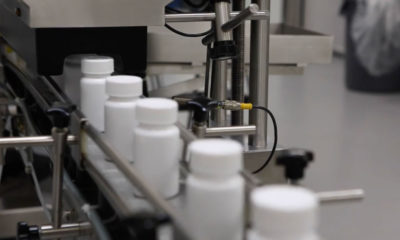A new study shows that antibiotic use for children may cause irritable bowel syndrome as adults. This study was conducted by Rutgers University and uses the correlation between young animals and their health later in life.
According to the results from the study, even short-term use of antibiotics by those under one year of age may increase the risk for developing IBD as adults. Giving infants antibiotics may cause a disruption of intestinal microbiota or the good bacteria that grows in the stomach. It helps the immune system to grow healthy and prevents diseases.
The study results strengthen the idea that antibiotic use in young children can not only prevent healthy development but it can play a part in future disease development. The study used mice which were given dextran sulfate sodium, which is a chemical known to cause problems with the colon. Some of the mice had received antibiotics while others had the normal microbial contents transplanted in the system.
The mice that received the antibiotics had more colitis and an altered response from the immune system. This study adds evidence to a hypothesis that when something disrupts the early development of microbiome, it can lead to a modern epidemic.
Researchers believe antibiotic use early in life may also contribute to type 1 diabetes later in life. It is well-known that antibiotics are designed to kill bacteria. Unfortunately, they cannot recognize the difference between good and bad bacteria, which means the medications may do harm as well as good to patients.
The Purpose of Microbiota
The human body has trillions of cells that form the microbiota in the system, which is primarily found in the intestines and stomach. These organisms are present from birth. Research indicates they make up about 4 pounds in the intestinal tract, and the mix is unique to each person.
Scientists who have studied microbiota believe that it has a major impact on how a person is able to fight off illness and disease and the way they digest food. It can even impact mood and psychological patterns.
Microbiota have been linked to many diseases, including the following:
- Asthma
- Cancer
- Colitis
- Diabetes
- Autism
- Heart disease
- Obesity
- Multiple sclerosis
In essence, the microbiota has an impact on nutrition, disease, behavior and immunity. When it is altered, it can change the way a person responds in any of these four areas.
The microbes in the gastrointestinal tract help break down nutrients in foods. For example, meat and vegetables cannot be broken down without the aid of these microbes. People wouldn’t get any nutritional value from many of the foods they eat without these little organisms.
They may also impact cravings for food and the ability to feel full after eating. Research has also shown that microbiota is more diverse in people who eat more variations in food rather than those who eat the same types of food all the time.
Further research is necessary to determine the full impact of antibiotics on the microbiota, but it could have a negative impact on people’s overall health.



























